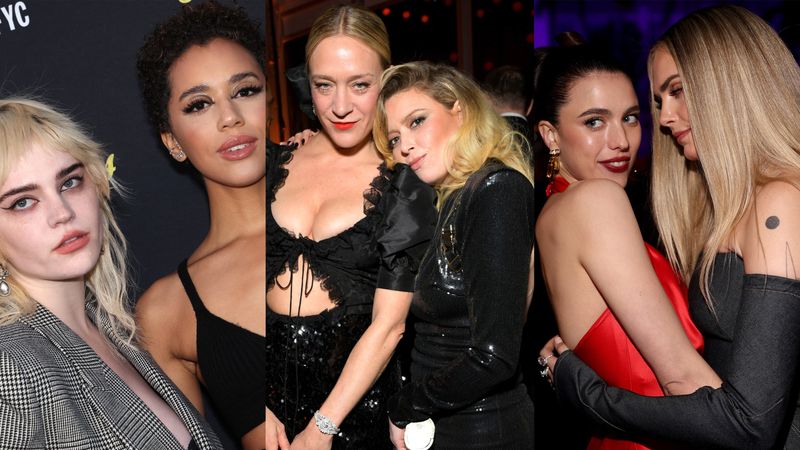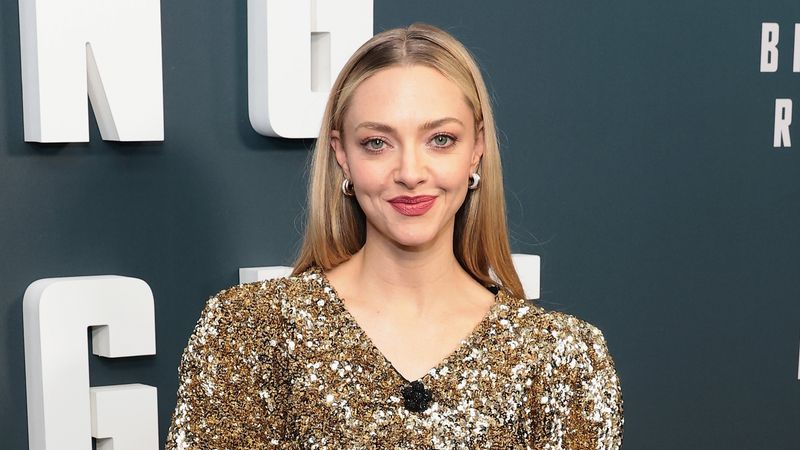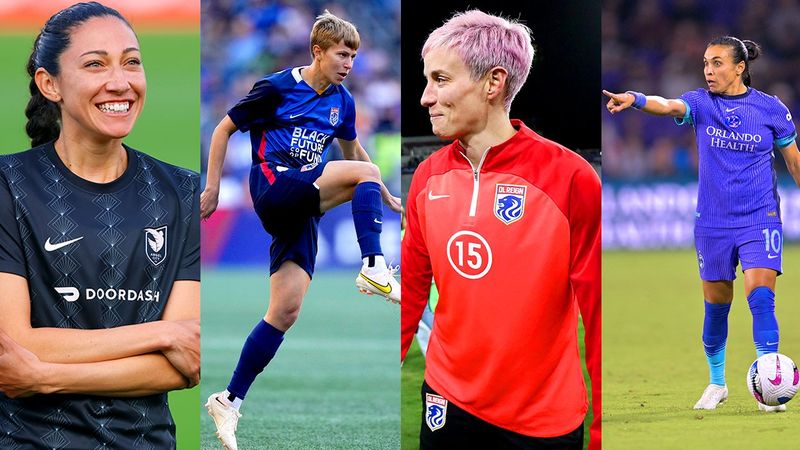A seasoned actress with an impressive résumé Michelle C. Bonilla’s IMDB page appears endless at first glance. Throughout her career, which includes a 12-year recurring role as an adorable paramedic on ER and putting the hot into the Klingon Bu’Kah on Enterprise to more recent stints on Saving Grace and Criminal Minds: Suspect Behavior, Bonilla has been unabashedly, openly gay. Now, the hard-working thespian is enjoying success wearing multiple hats as the writer, producer and star of the short film Slip Away, currently making the film festival rounds.
While Bonilla played gay once before in the charming short Getting to Know You, which starred Elizabeth Keener, she’s written a meaty role for herself as a drug addict becoming unhinged amidst a relationship with a stable, loving woman in Slip Away, which features the likes of actors Wilson Cruz, Thea Gill and Hal Sparks.
A haunting short equally strong on story, camera work, cinematography and soundtrack Slip Away has already garnered critical acclaim at the Mexican International Film Festival and the Fort Worth Gay and Lesbian International Film Festival. But that’s only the beginning. Among other upcoming film fest screenings, Slip Away will screen as an Official Selection at LA’s premiere LGBT festival Outfest, a real win for a Los Angeles native like Bonilla.
Bonilla, who’s currently at the Provincetown Film Festival with the film, chatted with SheWired about the film’s evolution, writing versus acting, her desire to portray a strong Latina with her character’s love interest, being out in Hollywood and and more…
SheWired: Congratulations on Slip Away. What was the germ for writing this short that features some pretty dark subject matter.
Michelle C. Bonilla: Well, I wrote it based on a true story that happened to me. I’ve changed the names, and switched things around a little bit, but it has to do with living with an addict alcoholic during a very new time for me. It was my first gay relationship. I had a lot of crazy things going on with that. You know, a lot of newness.
SW: Was it cathartic for you to write about it?
MB: It was very therapeutic to start writing about it. It took me about six years to write it completely to get ready for actually filming it because it was a little too close. I had to keep some distance, and I had to keep form, and I had to keep structure. And it took a little bit of an evolution because it was just a really powerful thing to deal with.
I wrote myself playing the addict/alcoholic, because in real life, I was more like the character Selena -- kind of going through this sort of whirlwind of emotion and misunderstanding -- not understanding myself. So, to play the addict, it really switched things up for me, and I grew to have a compassion for that character Jane.
SW: How it was for you to act in something you had written since you are have acted in so many television shows over the years. Also, you’re producing – did that change your performance in any way?
MB: Thank God that I can compartmentalize things pretty well because when I wrote it, it was “Okay, I’m writing this,” which is completely different. And the business side of it -- it’s just a matter of getting it all together.
I also had another producer in Jenn Garrison, who was fantastic -- really helped me put all of this together, along with my director Tina Scorzafava.
First and foremost I’m an actor and that’s just so ingrained in me. So, when I hear things breaking in the back I’m like, “Oh! There’s another $100!” I just was able to put that aside. There was some sort of a split of attention for a second, but when it came time to do my role and when it came time to do some pretty emotional scenes I was able to just connect with that and do my job.
SW: Did you change any of the scenes you had written once you were in the role?
MB: I let the other actors -- like Lauren Birriel, who played Selena -- if she felt like saying something another way, I was very open to that because it was her job to fill those shoes and she’s very talented. So, if she wanted to change a word or two, nothing that changed the plot or anything, I was so open to that because she’s the one, inevitably, who would have to believe in those given set of circumstances.
The dialogue that we changed came mostly when we were at the bar with Hal (Sparks) and Thea (Gill), because they’re very cool and fun to work with. And Hal is just a nut, I love him so much. So whatever he wanted to say…
More on next page...
\\\
(continued)
SW: I was really excited to see all of those wonderful people – Hal, Thea, and Wilson (Cruz) – in the film. How did you get them to participate?
Wilson Cruz with Lauren Birriel
MB: Well, Wilson and I had worked with a director, separately on different projects. I contacted him (Wilson) with the script. We met and he really connected with the material, and he liked the message it was giving, especially with the Latina/Latino aspect of it.
I play the addict in it, so here we are, a Latin girl, or a Latin woman, making a bad choice. And it was very important to me that the actor we got to play Selena be Latina because it’s very rare that we see a Latina (in film) making a positive choice -- where she’s not the victim.
I wanted it to be a universal subject that maybe anyone could go through. And I think that’s how I got the cast. All of them very much connected, in one way or another, with the topic.
It excites me that I was able to bring it from my point of view of being a Latina, and also being gay, to, in the end, to have this character (Selena) be victorious over the situation in that moment.
SW: You have this very steamy sex scene right off the bat. Have you done sex scenes before?
MB: I did one sex scene in, funny enough, Getting To Know You with Elizabeth Keener. I play Elizabeth Keener’s fantasy girl, which in the end we find out is a twin sister of mine. Which was actually great. That’s Liz Lachman, great writing.
This one was very challenging, but not hard to do… Lauren, she’s beautiful! (Laughs)
SW: Was there a strong contingency of women / lesbians who worked on the film? And I only ask because it seems like it would be a really different experience from the mainstream work you’ve done in Hollywood.
MB: Yes we did have gay people but mostly a lot of women. It was Jenn, Tina, myself….We had an amazing cinematographer, Hilda Mercado, who is not only a woman, she is Mexican, but she’s not gay.
But our associate producer was gay, and my other associate producer, is not gay, but also a woman. So, I was very much blessed with wonderful, strong, talented women. And we didn’t plan it out like that. I wasn’t like, “This is supposed to be all women! And they have to be all lesbian.” I wanted good people.
We were on set one day, and I was looking at the call sheet thinking, “Holy hell, look at all these women!” Don’t get me wrong, we had our fair share of guys too because talent does not discriminate among the sexes. But we did have a strong sense of women, but more than that we had a strong sense of artistic camaraderie, and everyone was really great. I do have to say that without the crew, who also believed in this project, it would not have been possible. So, I’m very grateful to my crew.
SW: What has the process of submitting your film to film festivals and attending them been like for you so far?
MB: It’s challenging and anxiety inducing. You know, I am so competitive in a way, just competitive within myself like, “Oh, I want it to be in every festival I submit to!” So I’ve submitted to a load full of film festivals, and that in the post-production phase as a producer has actually been the most difficult for me because it’s a lot of paperwork and a lot of Excel files, and a lot of “Check, check! Submitted! Not Accepted!”
I wasn’t accepted to Sundance, but looking at the films that were accepted, I don’t feel so bad. But when it is finally accepted, it’s just a wonderful thing. You know, we won the Mexico International Film Festival. We got the Bronze Palm Award in short film with that, and we also were accepted in Melbourne for a film festival. That was our first acceptance.
And then, we headed to the Atlanta Film Festival, which was very nice because that’s considered a straight film festival. We had our Canadian premiere at the Inside Out Toronto Film Festival. I’m very honored to be in that one. They’re just so wonderful over there, and I’m in good company over there in their shorts program. Then we go to Provincetown.
More on next page...
\\\
(continued)
SW: You were recently accepted at a big one for us folks in Southern California – Outfest! How do you feel about that one?
MB: "I'm from Los Angeles. So, it's a super honor to be able to show a film that I worked so hard to make come to fruition actually materialize in my hometown. I'm grateful to Outfest for choosing it. And I'm grateful to my cast and crew for helping me make this a reality."
SW: What’s been the most exciting or rewarding aspect of the film festival process?
MB: I’m meeting great people, and I’m meeting a lot of supporters of good film. Just a quick anecdote -- when I was in Atlanta, I had a woman drive nine hours from Florida to see Slip Away. Just to see Slip Away... And I was so honored that she did that. That’s the kind of support that’s within this community. You know, the community of women filmmakers, the community of lesbian filmgoers, the community of gay filmgoers in general. That’s so nice to see and feel and be introduced to.
SW: I really enjoyed Slip Away. I thought it was beautifully written, acted and shot. Is there anything else you’d like to say about it?
MB: Take note of the music. We have amazing musicians in this. There’s an Indie musician -- her name is Annaliese. She has three songs in the film. You know, the club scenes are written by Jasper James, and she’s a very hot up and comer – great songs.
There was another musician in there who are Arles Estes.
Then we have our score. We have Audiomachine who wrote some beautiful scoring. So, all the background that you hear is all Audiomachine. I’m just so honored that these great musicians came together for this piece. I’m really happy about that because as Tina and I and Jenn were talking about mood and tone, and it was really important that all of those elements came together and music plays a role in that.
SW: Things have changed quite a bit on network television, as far as lesbian character/gay characters go. You’ve been out pretty much throughout your extensive television career… And you’ve been in everything from ER to Saving Grace to Star Trek. Recently you did a stint on Criminal Minds: Suspect Behavior. Do you feel as though there’s still a stigma still attached to being an out lesbian and working in Hollywood?
MB: I don’t. I mean, so many of our actors are modern actors now. Now, they’re just coming out, you know, “I’m bisexual! I’m gay!” The bottom line is that they’re still badass actors, and they’re awesome. And that’s what producers care about.
But, I think where it’s more of an issue is being Latin. That’s more of an issue. Because there are still strides that need to be made, let’s say, in the Latin community to accept the gay community. And I could tell you as well that it’s hard to talk to my brothers and sisters in the Latin media because they’re either afraid, or they have their own stigma. They say, “Oh, readers won’t like that.” All I can say to my brothers and sisters in the Latin community is to embrace each other because we’re still Latin, we still have the buying numbers, we are the biggest population in the United States. Here we are!
I feel a little left out in the cold in that way because, you know, it’s my culture, it’s my people. But in terms of my community of actors and my community of artists, they’re more embracing of being gay, or being Latin and gay. They could care less. It’s more about what you know. At least that’s been my case.
SW: It would appear that from your numerous television spots you have indeed been embraced.
MB: I’ve been very blessed to be able to work with the people I’ve worked with who know me just for my work and who don’t scrutinize me for who I am or what my sexuality is. When they say, “Oh, Michelle Bonilla, let’s bring her in,” it’s for my body of work, and it’s not for who I sleep with. So, I’m very blessed and honored to have that as the foundation of my career.
SW: I see that your IMDB dance card looks pretty full coming up. Are there any projects you’d like to talk about?
MB: Well, I did an episode of Luck, which is Dustin Hoffman’s new series. I was actually given a role in that, and I was handpicked. That was an offer I could not refuse to work with David Milch, once again, who had worked with me twice before in each of NYPD Blues. I love David, so I’m happy for that.
SW: Back to Slip Away for just a moment, I see it as something that could easily be turned into a feature. Any thoughts about that?
MB: Bring it on!
Follow Michelle and Slip Away on Twitter for all the latest updates.


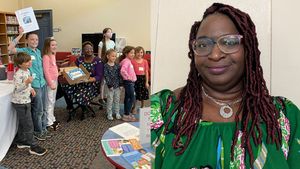

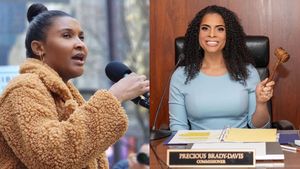


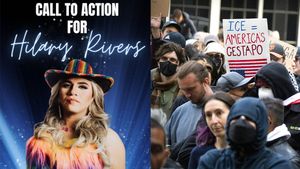




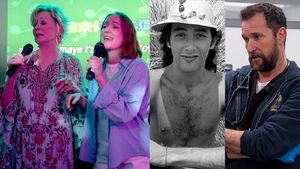





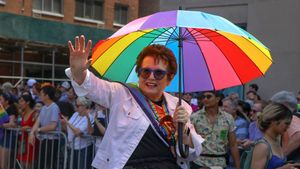



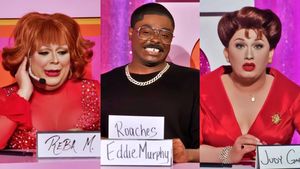

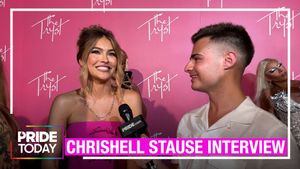
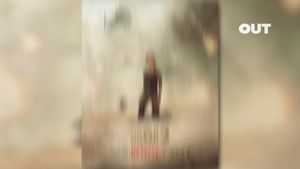






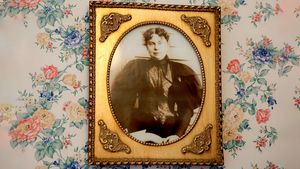

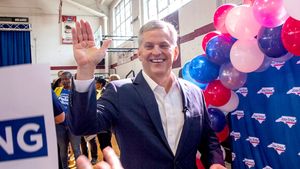


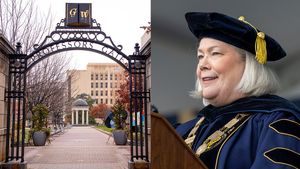

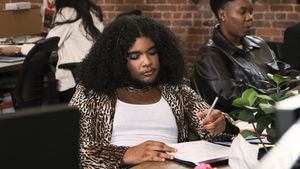




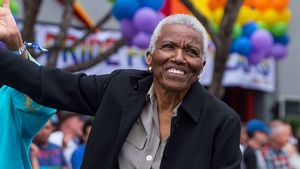
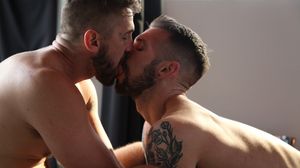






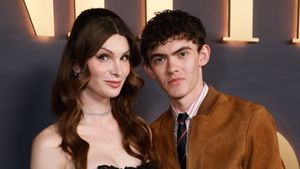







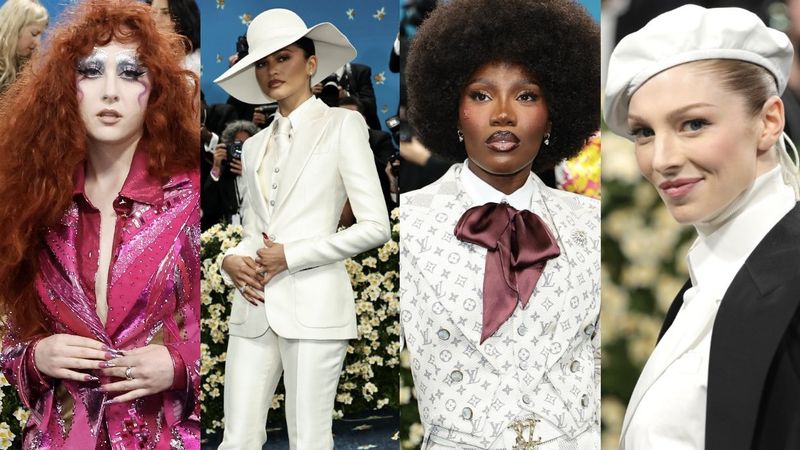



































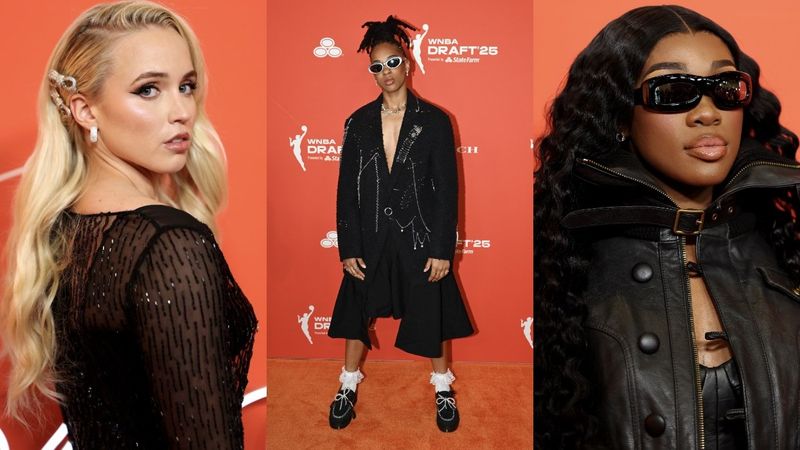
 Cindy Ord/Getty Images
Cindy Ord/Getty Images










